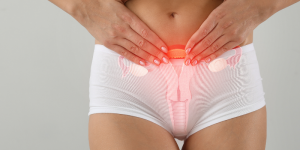Statistical analysis shows that red meat enhances endometriosis risk. Red meat is high in iron, which may explain why it has been linked to increased endometriosis risk.
Endometriosis is a common female reproductive disorder that affects an estimated 176 million women around the world. It occurs when cells in the uterus, known as endometrial tissue, are found outside of the uterine cavity, typically on the ovaries, fallopian tubes and on or inside other organs. This condition can cause severe pelvic pain, but research has shown that red meat consumption has been linked to an increased risk in women who have it.
How Red Meat Affects Your Body’s Hormone Levels to Enhance Endometriosis Risk
A healthy hormone balance is extremely important when it comes to managing endometriosis. Researchers believe that a diet that raises inflammation levels in the body increases the risk of this condition.
The primary nutrient of concern when it comes to conserving the hormone balance is zinc. Zinc and other essential minerals work together to control the activity of your hormones. When you consume a lot of red meat, whether it’s beef, pork or lamb, it can put a big dent in zinc stores and put the body in hormonal imbalance, which can lead to endometriosis. For example, studies have found that women who have endometriosis are twice as likely to have a zinc deficiency. This is important because zinc plays a big role in the production of reproductive hormones like estrogen, progesterone and testosterone.
Eating a high red meat diet can also throw off other nutrient levels that can contribute to endometriosis risk. High levels of iron supplementation, for example, have been linked with increased uterine bleeding, which can increase your risk of developing endometriosis.

While red meat is a food that is high in protein, it’s also high in calories. This can cause you to gain weight, which is another endometriosis risk factor. One study found that women who gained around 11 pounds or more during their mid-teen years were 1.7 times more likely to develop the condition than women who gained five pounds or less. This study found that women whose body mass index (BMI) was 30 or greater at age 18 were 1.5 times more likely to be diagnosed with endometriosis than those whose BMI was less than 25. According to the researchers, this could be because of changes in hormone levels and tissue sensitivity. Women whose weight fluctuated a lot by age 18 were 1.68 times as likely to develop endometriosis as those whose weight remained steady.
One study published in the American Journal of Obstetrics & Gynecology found women who eat processed red meat (pork, beef or lamb) every day are at a significantly higher risk of developing endometriosis than those who don’t.
According to the study, there are several endometriosis risk factors, including:
- Menarche before age 12
- Delayed first full-term pregnancy or first full-term pregnancy after age 30
- Early menopause (before age 40) or late menopause (older than age 45)
Additional Endometriosis Risk Factors
- Never having been pregnant or having had only one child
- Having a mother who has endometriosis
- Doing little exercise and being overweight or obese
- Drinking alcohol regularly to excess during the teen years (binge drinking)
How to Lower Your Risk of Endometriosis
- Consume a healthy, balanced diet high in whole foods, especially fruits and vegetables, plus lean protein like chicken and fish.
- Eat zinc-rich foods like whole grains, beans and seeds.
- Exercise regularly. According to Harvard Medical studies, women who exercise for 30 minutes daily are 40% less likely to develop endometriosis.
- Reduce the consumption of red meat.
Conclusion
Endometriosis is a crisis for many women and is often a cause of infertility. It is important for women to avoid risk factors such as the consumption of too much red meat. Pick a combination of food that reduces body inflammation. Go for a diet rich in plant nutrients, vitamins and minerals. Also, add food rich in antioxidants and essential fatty acids.




